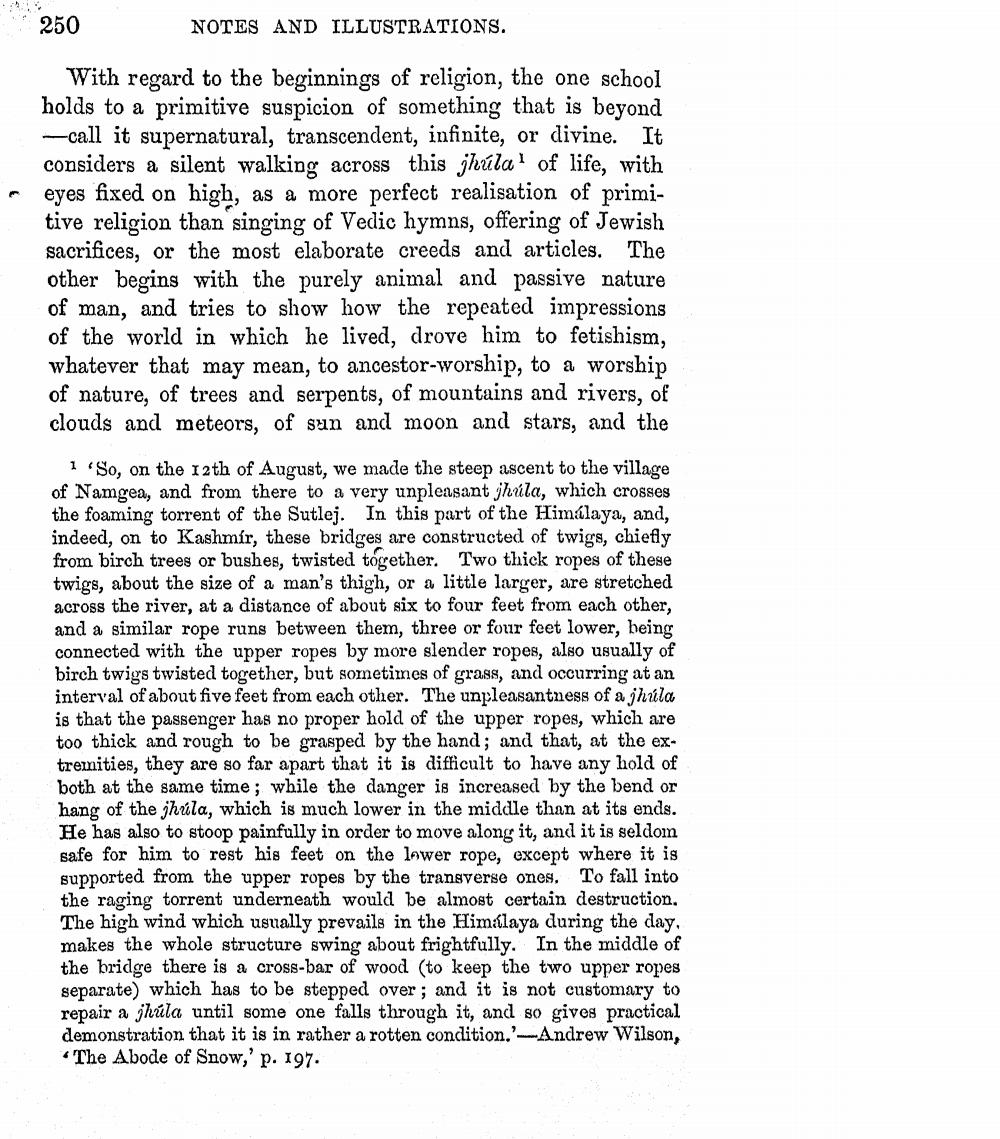________________
250
NOTES AND ILLUSTRATIONS.
With regard to the beginnings of religion, the one school holds to a primitive suspicion of something that is beyond —call it supernatural, transcendent, infinite, or divine. It considers a silent walking across this jhula' of life, with eyes fixed on high, as a more perfect realisation of primitive religion than singing of Vedic hymns, offering of Jewish sacrifices, or the most elaborate creeds and articles. The other begins with the purely animal and passive nature of man, and tries to show how the repeated impressions of the world in which he lived, drove him to fetishism, whatever that may mean, to ancestor-worship, to a worship of nature, of trees and serpents, of mountains and rivers, of clouds and meteors, of sun and moon and stars, and the
1 So, on the 12th of August, we made the steep ascent to the village of Namgea, and from there to a very unpleasant jhula, which crosses the foaming torrent of the Sutlej. In this part of the Himálaya, and, indeed, on to Kashmír, these bridges are constructed of twigs, chiefly from birch trees or bushes, twisted together. Two thick ropes of these twigs, about the size of a man's thigh, or a little larger, are stretched across the river, at a distance of about six to four feet from each other, and a similar rope runs between them, three or four feet lower, being connected with the upper ropes by more slender ropes, also usually of birch twigs twisted together, but sometimes of grass, and occurring at an interval of about five feet from each other. The unpleasantness of a jhula is that the passenger has no proper hold of the upper ropes, which are too thick and rough to be grasped by the hand; and that, at the extremities, they are so far apart that it is difficult to have any hold of both at the same time; while the danger is increased by the bend or hang of the jhula, which is much lower in the middle than at its ends. He has also to stoop painfully in order to move along it, and it is seldom safe for him to rest his feet on the lower rope, except where it is supported from the upper ropes by the transverse ones. To fall into the raging torrent underneath would be almost certain destruction. The high wind which usually prevails in the Himalaya during the day, makes the whole structure swing about frightfully. In the middle of the bridge there is a cross-bar of wood (to keep the two upper ropes separate) which has to be stepped over; and it is not customary to repair a jhula until some one falls through it, and so gives practical demonstration that it is in rather a rotten condition.'-Andrew Wilson, • The Abode of Snow,' p. 197.




